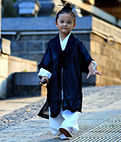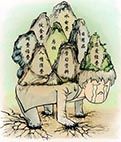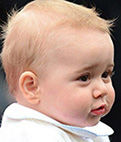According to an analysis of the rankings, the children of Shanghai's cleaners and caterers are three years more advanced than UK lawyers' and doctors' children in maths. Yet the figures are an unreliable measure of equality. Although Shanghai's 23 million people make up less than 2% of China's population, its per capita GDP is more than double the national average; its college enrolment rate is four times as high。
Furthermore, nearly half of Shanghai's school-age children belong to migrant families and were effectively barred from taking the test: because of China's residence registration system, these students are forced to attend high school in their home provinces, where schools are often debilitatingly understaffed. Although students from 12 provinces took the test in 2009, the government only shared Shanghai's scores。
"The OECD has not disclosed if other Chinese provinces secretly took part in the 2012 assessment. Nor have Pisa officials disclosed who selected the provinces that participated," wrote Tom Loveless, an education expert at Harvard University, on a Brookings Institute blog. "There is a lack of transparency surrounding Pisa's relationship with China."
Wang Peng, a teacher in Wuhu, a city in Anhui province, said that his school's average class size is significantly larger than most in Shanghai, and that it cannot compete in terms of financial strength. Wang said he makes about £300 a month; teachers in big cities make twice as much. "As far as education methods go, there's not a huge difference [between Wuhu and Shanghai]," he said. "But the general educational environment, and the opportunities that students receive – those are really different."
Occasionally, reminders of the system's ruthlessness cause soul-searching. In 2012, pictures of a classroom of Chinese high-school students hooked up to intravenous amino acid drips while studying for the gaokao went viral on social media. Last May two teenagers in Jiangsu killed themselves after "failing to complete homework", according to state media. In 2012, a student emerged from the exam to learn that his mother had died in a car crash 12 days prior; the school and his relatives conspired not to tell him so as to not distract him。
Authorities recognise the problem. Last June the government issued guidelines urging schools to focus on students' "moral development", "citizenship" and "ambition" rather than their test scores。
Yet solutions remain elusive. One recently retired teacher at a Beijing middle school said she earns extra money by teaching an after-school cramming course called maths olympiad. The programme was designed as an advanced exercise for outstanding maths students。
In the late 1990s Beijing authorities barred grade schools from setting entrance exams, and some simply adopted maths olympiad scores as a substitute. Parents began to see the course as required, even if their children were uninterested or under-qualified. Although the education ministry has repeatedly cracked down on maths olympiad instruction, schools maintain the programme under different names, state media reported in 2012. Enrolment figures remain high。
"When maths olympiad first started, it had the right idea – it was a programme for students who were really interested," said the teacher, who requested anonymity because of the course's controversial profile. "There are a lot of kids without the ability who go to study this stuff, and it consumes their weekends, and their winter and summer vacations。
"These students aren't developing in a healthy way. This shouldn't be allowed to happen."











